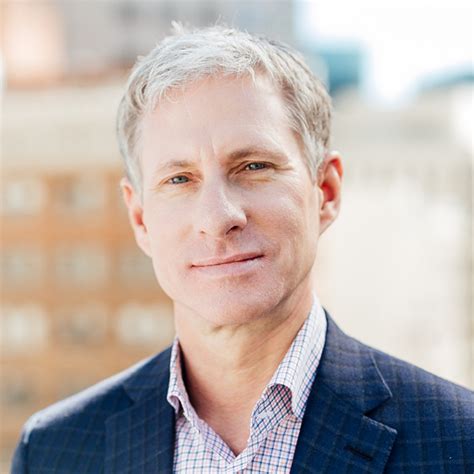Top 1200 Crumbling Infrastructure Quotes & Sayings - Page 19
Explore popular Crumbling Infrastructure quotes.
Last updated on April 20, 2025.
Our top plank really is a Green New Deal to transform our economy to a green economy, 100 percent wind, water and sun by the year 2030 - we can do it; this is an emergency, and we must do it - but to use that as an opportunity to put America back to work, to renew our infrastructure, and to basically assure that everyone has a job.
We should be increasing our investment in the infrastructure for public safety and public health. But when we talk about those as two distinct and separate departments or budgetary items, we're missing out on the ways in which we should be most effectively using our resources and serving our residents.
Phyllis is one of the tunnel boring machines for Crossrail and one of the most extraordinary characters I met, visiting some of the most exciting infrastructure in Britain. Crossrail is the new railway which will run from West to East right across London. It is the biggest engineering project in Europe - and Phyllis herself is not exactly dainty.
I think this is exactly where the action is, is in the middle. I have seen it when I was governor of the state of California. I have seen it firsthand, that the only way we brought Democrats and Republicans together, we could really solve very important issues. I remember that's how we really started rebuilding California and invested $60 billion in infrastructure.
I believe that in order for our democratic system to work as intended, the average person must have faith in their government. Citizens must believe that our system is working to represent them, and that it is capable of advancing issues like healthcare access, lowering prescription drug costs and improving infrastructure.
After disasters, reproductive healthcare falls by the wayside. Yet babies continue to be born. When all infrastructure falls apart, when the hospitals and all their technological equipment are destroyed, midwives come in handy. They can help women give birth with or without electricity, running water, equipment - even shelter is optional. When babies are ready, they come.
Just the fact that we can't pass budgets in our Congress, just the fact that we are gridlocked in our own democracy, the fact that everybody who travels can see that we're not investing in our airports, in our rail, in our infrastructure and so forth, people are noticing a United States that is not getting the job done in some ways.
I think raising wages, investing in infrastructure, making sure that people have access to good educations that equip them for the jobs of the future. Those are all agenda items that would help alleviate some of those economic pressures and dislocations that people are experiencing. The problem was I couldn't convince the Republican Congress to pass a lot of them.
This is another area in which savings can also be moved from wasteful - like the F-35 weapons system that will cost us $1.5 trillion by the time it's done and it's obsolete, you know, it's a weapons system - as well as this global military infrastructure, which is unlike anything the world has ever known at any time.
The funding of rural roads is imperative if we want to continue to grow our economy and improve the overall health of our vast, rural regions in the commonwealth. As a native of the Eastern Shore, I know that a single trip down U.S. Route 13 and across the Chesapeake Bay Bridge - Tunnel can show us how important infrastructure is to rural Virginia.
Germany has great skill levels, great infrastructure, high-quality plant. If you go to the U.K., we're very creative, and we've got the language, but energy costs are pretty much the most expensive in the Western world; pensions are pretty expensive, and the skills are significantly below those in Germany and the U.S.
I learn more about how to run a set teaching six-year-olds. You go into a classroom as a teacher, and the most important work you do is create an infrastructure and an environment that's safe, in which children will feel able and free to take risk. Working with actors, you have to establish the same thing. Teaching a class is not so different than mounting a production.
By leaning on companies, by leaning on infrastructure providers, by leaning on researchers, graduate students, post-docs, even undergrads, to look at the challenges having an untrusted internet, where we have to put our communications on wires that are owned by a phone company that we can't trust, that's working in collaboration with a government that we can't trust, in areas around the world, we can restructure that communications fabric in a way that it's encrypted.
Hillary Brown understands that?for our grandchildren's sake?we must rebuild America and, in doing so, re-imagine our interconnected infrastructure systems to make them more efficient, environmentally safe, and resilient in this age of global urbanization. This fascinating and important book should be required reading for our elected officials and policy-makers.
People say, "How do you get into the British film industry?" There is no British film industry, there are just people making films and finding their own way. It's not like in the States where there are studios and there's an actual infrastructure to it; there's just nothing here. You make it from scratch a lot of the time.
Booksellers are tied to publishing - they need conventional publishing models to continue - but for those companies, that's not the case. Amazon is an infrastructure company; Apple sells hardware; Google is really an advertising company. You can't afford as a publisher to have those companies control your route to market.
Samasource creates jobs in regions where more traditional forms of employment in low-income economies, such as manufacturing, are difficult to scale because of poor infrastructure. In a village in Rukka, India, for example, our small data entry partner employs over 60 people doing various types of Internet research for Samasource.
No matter what your political persuasion, you can find a guide that makes it quick, easy and painless to exercise your right to vote. Wanna know what a certain proposition put forth by a cadre of undisclosed billionaires which cuts funding for public education, arts and infrastructure means? Use the voting guide!
...[D]ivision of labor, in my mind, is one of the dangers of work-based technology. Modern IT infrastructure allows us to break projects into very small, discrete parts and assign each person to do only one of the many parts. In so doing, companies run the risk of taking away employees' sense of the big picture, purpose, and sense of completion.
Many of the original New Deal programs required heavy manual labor. WPA workers built hundreds of schools, health clinics, roads, park facilities, and community centers. Much of what we now call our 'infrastructure' - highways, buildings, power plants, etc. - is here thanks to thousands of WPA workers.
I would give Obama a "C." He gets an "A" for understanding this country's profound problems in education, health care, infrastructure, and economic competitiveness, and for surrounding himself with extremely skilled and knowledgeable people who know what to do. He probably gets an "F," ironically, in his ability to sell these ideas to the American public and to be angry enough, conniving enough, and frankly mean enough to get them implemented and understood.
The NSA has built an infrastructure that allows it to intercept almost everything. With this capability, the vast majority of human communications are automatically ingested without targeting. If I wanted to see your emails or your wife's phone, all I have to do is use intercepts. I can get your emails, passwords, phone records, credit cards.
Outsourcing, in and of itself, isn't responsible for the erosion of America's high tech infrastructure. The short-term thinking that led to a lot of bad outsourcing decisions is the root cause. And short-term thinking isn't a problem confined to the executive suite. It's a problem in Washington and in our society as a whole.
There are fun parts of running a startup and not so fun parts, and Facebook handles the not so fun parts, like infrastructure, spam, sales. The real questions are, how big can 'Instagram' get? Is it 400 million, or bigger? Can it be a viable business if it is that big? These are at the top of the list for everyone in Silicon Valley.
Building a smarter grid has long been a key part of our government's plan to modernize our energy infrastructure and provide clean, reliable affordable power to consumers. By supporting Ryerson's Centre for Urban Energy we are building a whole new landscape for innovations that will be the backbone for our energy system for future generations.
It turns out that advancing equal opportunity and economic empowerment is both morally right and good economics. Why? Because discrimination, poverty and ignorance restrict growth. We know that investments in education, infrastructure and scientific and technological research increase growth. They increase good jobs, and they create new wealth for all of us.
Next-generation networks are hard to build. It takes a lot of money and effort to lay fiber, install wireless infrastructure, build satellite earth stations, and more. It also requires a reasonably certain business case for deployment, which is all too often hard to prove in parts of the country with sparse population and/or lower incomes.
It'll be taught in homes that it's not okay to make fun of a kid because he's gay or it's not okay to make fun of a girl cause she's fat. But that we have been living for so long in a culture where so many people's parents supported those beliefs that there wasn't any infrastructure for children understanding right and wrong in those situations, if that makes sense.
And let's not forget that internally, we are, like all dying empires, being hollowed out from the inside in terms of infrastructure. I live near Philly, I live in Princeton. The school system is shattered with closings and layoffs. Libraries are being shuttered. Head Start is being cut back. Unemployment benefits are not being extended. You know, we've reached a point of both physical and emotional exhaustion.
In Iraq, State Department civilians and U.S. soldiers have been operating in the same location in an active war zone. While the troops have been facing insurgents, the State Department civilians have been working to rebuild institutions and infrastructure. Blackwater's role in this war evolved from this unprecedented dynamic.
For every show that we do, anyone that rides public transit, bikes, or walk, we offer them a $5 voucher at the merch table. It gets people using the infrastructure in the area. Hopefully, the venues where we play will lobby city council and say, we need bike paths, sidewalk repair. That stuff affects so many people's lives.
Lincoln was a modernizer, so to speak. He believed in economic development. As a Whig before the war he favored what we would call infrastructure spending, government appropriation for canals, railroads, river and harbor improvements, and a tariff to protect industry. He believed in this market revolution that was sweeping across Northern society. He himself benefited from it in his own life.
Odisha faces natural calamities almost every year. The assistance we get from the Centre is mostly for temporary restoration of infrastructure. We have to spend a lot from state's own funds to work for the long-term. This puts too much stress on our finances. Precisely for this reason, Odisha should be considered for special category status.
We continue to see our elected officials working extra hard to create a 'good climate for business' that leads to disinvestment in public infrastructure and tax incentives to the detriment of cities, while enriching private business and further entrenching poverty. And our cities are told by legislators to use their bootstraps to survive.
WhatsApp is both disrupting and demonetizing the entire wireless industry, and now the Facebook acquisition provides the infrastructure needed for WhatsApp to begin offering voice calls. So instead of people paying on average $80 per month, users only have to pay $0.99 per year for the same services. Wireless carriers, beware.
I am very pleased to see this project moving ahead. The Hamilton Airport serves as an international gateway to south-western Ontario. This new facility will allow the airport to expand its air cargo business and help strengthen the local economy. This is another example of Ontario's commitment to public infrastructure that contributes to long-term growth for the region.
Natural gas will displace coal in power generation. Getting natural gas into the transportation fleet is harder. It works best for vehicles that work from centralized fueling facilities like trucking fleets or buses and cabs. That is happening. Before it can make big inroads beyond that, infrastructure is going to need to be developed.
The investment in our mining industry has been very positive for Australia but we need to be doing more if we want, as I do, more revenue for our defence - which I think is under-resourced - our police, our elderly, our hospitals, roads, infrastructure and communication, to be able to repay our debts and enable sustainable job opportunities for existing and future generations.
...if we want to meet the obligations of our civilization and our culture which are to create communities for our children that provide them with the same opportunities for dignity and enrichment as the communities that our parents gave us, we've got to start by protecting that infrastructure; the air that we breathe, the water that we drink, the landscapes that enrich us.
I thought I'd left politics when Labour lost the 2010 election and I went off and ran a thinktank for two years and founded the National Infrastructure Commission. It was only because of Brexit that I came back. And I had to learn rapidly how to do politics in the 2010s and it soon became clear to me that you had to be ever-present on social media.
I spent my whole career thinking about risk, markets, infrastructure, and regulation. I had seen the financial crisis unfold, and I had seen the credit derivatives market get operationally ahead of itself, which resulted in systemic risk counterparty exposures. I began to believe that distributed ledgers had the capability to tackle that problem.
When it comes to solving problems of poverty, impact investing can act as a catalyst, but it is not a silver bullet. Successful businesses serving the poor need more than investment capital. They also need infrastructure to enable effective distribution, strong regulatory systems, access to markets, technical assistance as they scale up, and more
Only rarely do we see beyond the needs of humanity, and he linked this blindness to our Christian and humanist infrastructure. It arose 2,000 years ago and was then benign, and we were no significant threat to Gaia. Now that we are over six billion hungry and greedy individuals, all aspiring to a first-world lifestyle, our urban way of life encroaches upon the domain of the living Earth.
To improve global health, it's not enough just to have a really good new product and to obtain marketing approval. You still need to market the product and bring it to patients, follow up, create the infrastructure, and so on - the whole pipeline, the network. That's something that companies are extremely good at: organizing a whole pipeline in a cost-effective way.

